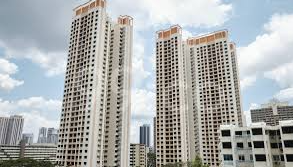As longer occupation periods become the norm, are Singaporeans prepared for life’s unexpected changes?
SINGAPORE: By 2024, the dream of living in the city centre will become more attainable for Singaporeans. However, with more affordable Build-To-Order (BTO) flats in prime locations comes a significant trade-off: a mandatory 10-year Minimum Occupation Period (MOP).
While the extended MOP aims to curb speculative behavior and ensure equitable housing access, it also forces buyers to commit to long-term decisions about their future—a challenge for younger Singaporeans whose lives may change drastically over a decade.
The New BTO Landscape
Starting in the second half of 2024, BTO flats will fall into three categories: Standard, Plus, and Prime.
Prime Flats are located in sought-after areas like Queenstown and Bukit Merah, with enhanced subsidies but stricter conditions, including a 10-year MOP and rental bans.
Plus Flats offer slightly less prime locations but come with resale restrictions and a 10-year MOP.
Standard Flats encompass all other projects with a standard 5-year MOP.
The new classification replaces the current mature and non-mature estate distinction. The changes aim to address affordability while reducing the growing number of million-dollar HDB deals, which exceeded 1,100 transactions between 2012 and mid-2023.
Unpredictability of Life
While longer MOPs ensure stability, they can complicate life for buyers navigating unexpected changes:
Family Planning: Buyers expecting to remain child-free might need more space if their plans change.
Neighbors and Environment: New developments offer no insight into future neighborhood dynamics or who your neighbors will be.
Divorce or Breakups: Statistically, many marriages face challenges within five to ten years, leaving couples locked into their properties.
Career Opportunities: Those relocating for overseas work must extend their MOP by the duration spent abroad.
Buyers unable to fulfill the MOP have limited options: surrendering the flat to HDB (with uncertain compensation) or filing for a waiver due to extraordinary circumstances such as financial hardship, divorce, or a partner’s death.
The Need for Flexibility
While the stricter regulations are necessary to deter speculative buying, they may inadvertently penalize individuals facing genuine challenges. Appeals to waive MOPs are tedious, requiring clear evidence of extraordinary circumstances.
A more nuanced approach could allow flexibility for significant life changes, such as caring for aging parents or unexpected family needs.
Balancing Homes and Investments
The government faces a delicate balancing act. Public housing must serve as both homes and nest eggs for Singaporeans, ensuring affordability while preserving long-term value.
Although Standard flats offer more flexibility, the allure of Plus and Prime flats remains strong, promising better locations and potential resale value after the extended MOP. However, prospective buyers must weigh these benefits against the constraints of a decade-long commitment.
For younger Singaporeans, whose lives are often tumultuous and unpredictable, these decisions carry even greater weight.
The Road Ahead
Singapore’s revamped BTO system aligns with the ethos of public housing as homes for genuine residents rather than investment vehicles. While the longer MOP for Plus and Prime flats curbs speculative behavior, the system must also consider life’s complexities.
As the first wave of buyers under the new framework begins their journey, the long-term impact of these changes will become clearer. Until then, the challenge remains: balancing personal aspirations with policy-driven restrictions.








